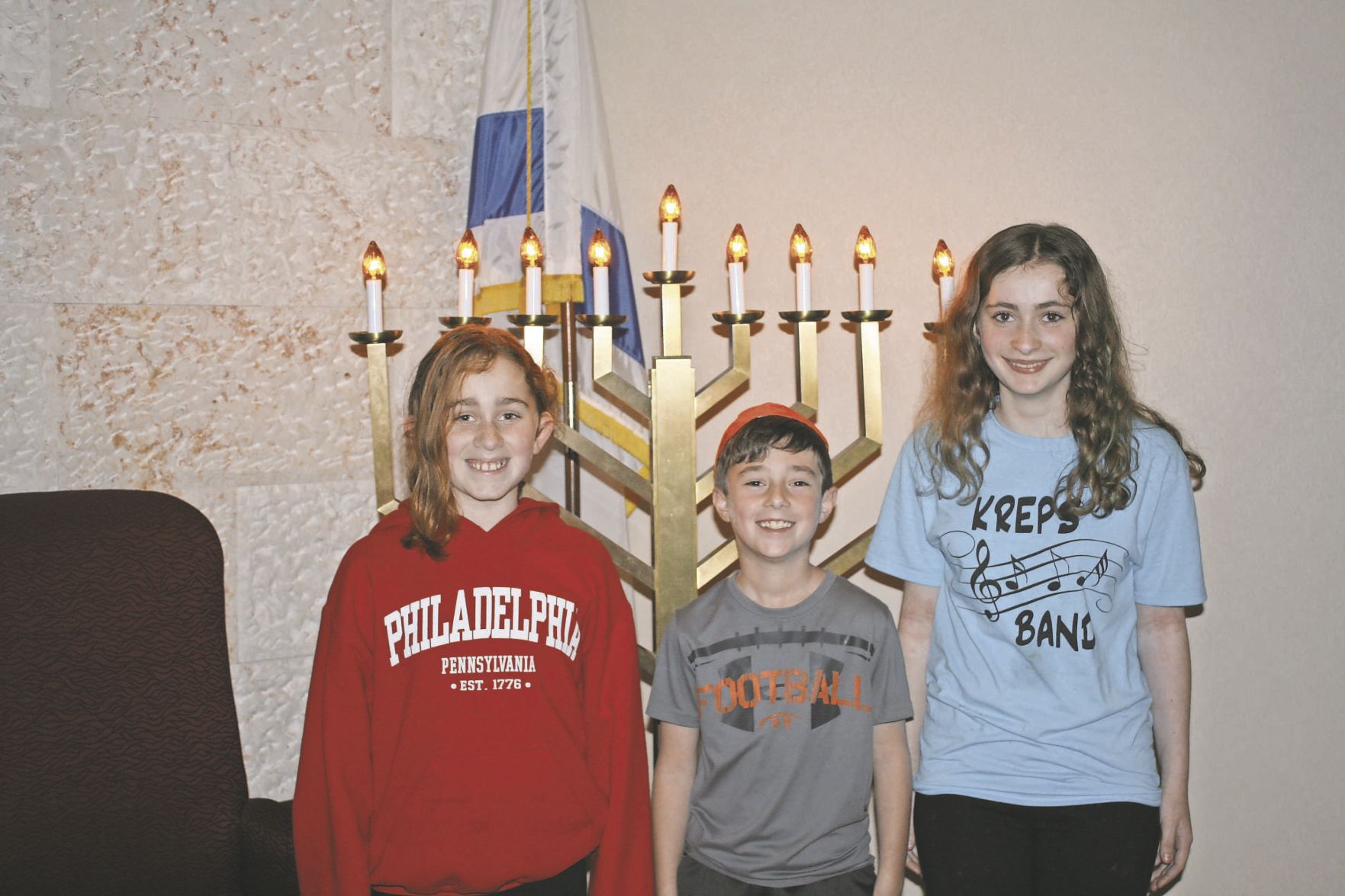By Steven Guggenheim
While Christmas comes every Dec. 25, the Jewish holiday of Chanukah can come anytime from Thanksgiving to late December, as it is doing this year, when the Festival of Lights begins on the night before Christmas. It’s all due to the Jewish calendar, which is based on the lunar year.
Chanukah, or Hanukkah, is celebrated for eight days. That’s because after the Greeks attacked the Jewish Temple and it was rededicated there was enough oil left to burn a candle for one night, but miraculously this lonely light stayed bright for eight days. As a result Jews light a candelabra with nine candle holders, a helping one and eight others.
On the first night you light the helping candle known as the Shamash and one other. Each night you add another until all candles are burning. The purpose of the Shamash is to light the other candles, which are more important
As opposed to Christmas, Chanukah is considered a minor Jewish holiday. Rabbi Jay Kornsgold of Beth El Synagogue in East Windsor says there are two main focuses of the holiday – the military victory of the Maccabees, a small Jewish group, over the mighty Syrian Greek army and the burning of the oil that lasted the eight days. He says most important is the military victory but that the oil came into prominence since the Jews did not want to have a holiday celebrating a military victory. Scholars even question whether the miracle of the oil actually did occur.
The military victory is significant since Antiochus, the leader of the Syrian Greek army, would allow the Jews to live but they would not be able to pray, there would be no Shabbat day of worship, no Torah, no kosher, no circumcisions . . . in other words no religion. The victory restored to the Jews the second Temple of Jerusalem.
The main focus of the holiday is the lighting of the Menorah. Beth El Cantor Larry Brandspiegel says the real miracle of the holiday is the ongoing flame of the Jewish people, who can keep celebrating their existence well after many other religions have faded away.
In addition to lighting the Menorah, families play with the dreidel which is a four-sided top, listen to special music, eat foods such as latkes and sufganiot (jelly doughnuts deep-fried in oil, signifying the oil that burned in the Temple) and exchange gifts. But the gift giving is generally not as elaborate as for Christmas. Some families give presents every night, others the first night, some every other night . . . it varies as to family custom.
Mr. Brandspiegel, who also is Beth El’s Religious School director, says we live in a multi-cultural community so we should not only respect but appreciate the other aspects of the community. He explains to the children that we have our Menorah with the colored candles and that their friends and neighbors have their beautiful culture with a Christmas tree and fancy lights. He says the lights of the Menorah are bright enough that we don’t need to put lights outside to compete.
Rabbi Kornsgold says Jews should not be jealous of Christmas since the Jewish religion has so many beautiful holidays throughout the year, while the big holiday for Christians comes just once a year. He says the focus of the holiday should be on the miracle of Chanukah, not the gifts that are given.
There are many Chanukah events at the synagogue. The Seniors Group had a party called, “Celebration of Chanukah.” The Religious School celebration is this coming Sunday. On Tuesday, Dec. 20, Beth El will present Hanukkah storytime at the Robbinsville library at 4:45 p.m. And a public lighting of the Beth El Menorah takes place Dec. 26 and 28, at 7:45 p.m.

